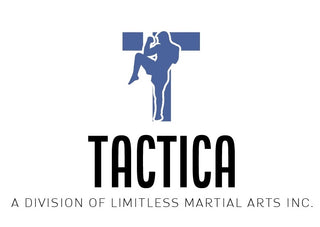HAVING THE RIGHT MIND SET TO IMPROVE IN LIFE & SPORTS

Just as the body and muscles respond to training stimuli, so does the mind. This represents the concept of neuroplasticity; the brain’s ability to change its processes and patterns. Focusing on training your mind will allow you to reap large gains over a short period of time. However, such mental training must be introduced in a progressive and consistent manner to enable positive development.
Here are seven critical elements that must be present in order to achieve a state of flow:
-
#1 – Challenge/Skills Balance
Training should meet you where you are currently at. If you currently struggle to snatch 135 lbs as a male or 95 lbs as a female, then a workout with multiple 135/95 lb snatches under fatigue is NOT a good recipe for getting into flow, OR for experiencing good training. Without understanding your individual needs and capacities, your training won’t be structured in a way that maximizes your performance. -
#2 Being Present
Being present is essentially being ‘in’ the moment by focusing everything on the task you are performing. After all, a small lapse in concentration at a key moment often leads to lost time. A few seconds can be the difference between success and failure in competition. Practice being present in your training, focused, and unwavering in your attention to the optimal outcome. -
#3 Action/Awareness Merging
You should feel at one with every movement and forge mind-muscle connections. Essentially, you want any movement to feel like an extension of your body. This only comes with years of deep, mindful practice of the skills required for the sport. However, the process can be accelerated by having a professional coach help you understand how a given workout should feel. This professional should also know the intended physical response and whether things should feel easy and sustainable. -
#4 Impartial Feedback
This is crucial to successful performance. It’s often tough to be objective on our own performance. Feedback from peers and coaches regarding your results is incredibly valuable to the learning process. There is truth in numbers. Therefore, it is vital that you are maintaining an accurate training log, as well as having a professional coach who can quantify your progression over time. -
#5 Loss of Self-Consciousness
Being ‘unconscious’ of yourself can be perceived by some as a negative quality. However, it’s a common trait amongst high performers across a broad spectrum of sports and fitness. Becoming one with the gloves and heavy bag provides freedom from any negative thoughts and allows you to stay focused on the task at hand. -
#6 Focus on the Process
In training, there’s often a tendency to focus on the tangibles: the numbers, adding a couple rounds to the training, or shaving a few seconds from the workout. This obsession on little details does not lead to achieving the state of flow. Flow happens when we focus instead on the process rather than the outcome. The pursuit of the process, not tangibles, is what allows you to enter a state of flow. Now that we understand what flow is and how to reach that state, it is time to discuss how your thoughts influence the actions you take in every situation. -
#7 You Are What You Think
The language we use internally shapes our experience of life, the way we interact with others, and our relationship with ourselves. This idea forms the framework of what’s known as the ‘Self Perception Theory’. “We often believe what we hear ourselves saying, and are far more likely to follow the path of action we decide on, independent of the advice, in the long term.”Self Perception Theory asserts that people develop their attitudes by observing their own behavior and concluding what attitudes must have caused it. The manner in which we use language reinforces these personal observations of our behavior which can negatively impact self perception. Start paying attention to the language and phrases you use either internally or when talking to others. You’ll likely find recurring phrases, or terms that can be changed over time to shift your mindset:
I want… vs I WILL….
I think… vs I KNOW….
Start by changing the language you use to describe yourself and your actions. You will find that by using powerful and more uplifting language, it becomes easier for us to align actions with our goals. Mantras, incantations, and personal slogans have been used for decades by peak-performers in and outside of sport. Never speak to yourself poorly. Speak to yourself with love and respect, just like you would about someone you care about deeply.
“Your beliefs become your thoughts, Your thoughts become your words, Your words become your actions, Your actions become your habits, Your habits become your values, Your values become your destiny.” – Gandhi
Come visit us at https://www.limitlessmartialarts.ca for additional information. We look forward to hearing from you soon.


